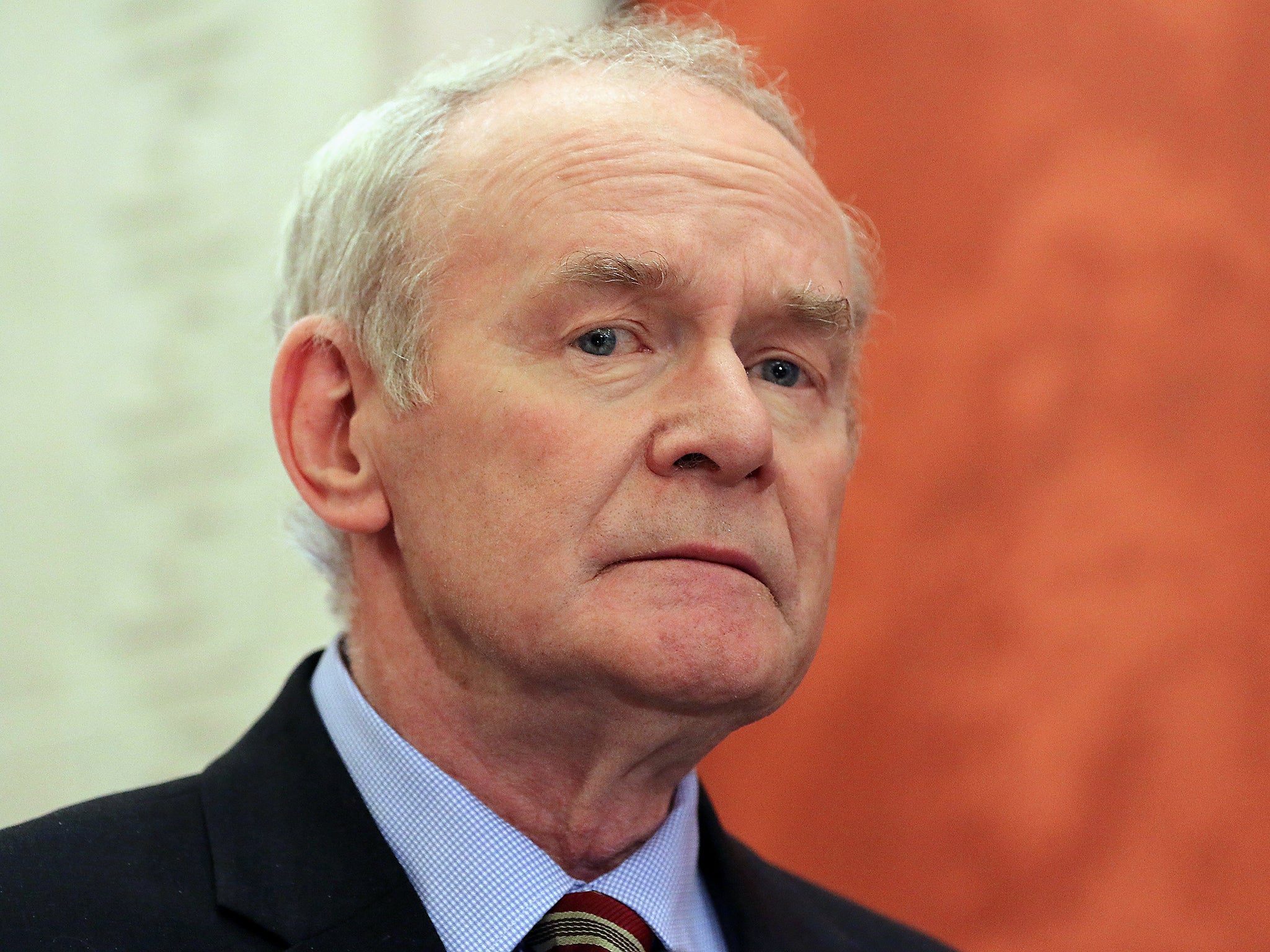Martin McGuinness: Former Northern Irish First Minister seriously ill in hospital
Sinn Fein politician is believed to be suffering from a genetic condition

Your support helps us to tell the story
From reproductive rights to climate change to Big Tech, The Independent is on the ground when the story is developing. Whether it's investigating the financials of Elon Musk's pro-Trump PAC or producing our latest documentary, 'The A Word', which shines a light on the American women fighting for reproductive rights, we know how important it is to parse out the facts from the messaging.
At such a critical moment in US history, we need reporters on the ground. Your donation allows us to keep sending journalists to speak to both sides of the story.
The Independent is trusted by Americans across the entire political spectrum. And unlike many other quality news outlets, we choose not to lock Americans out of our reporting and analysis with paywalls. We believe quality journalism should be available to everyone, paid for by those who can afford it.
Your support makes all the difference.Concern is growing for former Northern Ireland Deputy First Minister Martin McGuinness as it emerged he has spent the last two weeks in hospital.
The former Sinn Fein leader retired from politics in January on health grounds and is reported to be suffering from a genetic condition.
He was admitted to Altnagelvin Hospital in Londonderry two weeks ago due to the side-effects of his treatment, the Irish News reported.
The 66-year-old played no part in the Northern Ireland Assembly elections that his resignation triggered when Sinn Fein refused to replace him.
He did not attend the count at the Foyle Arena in Derry when his party celebrated their surge to take 27 seats.
When the election results began to emerge on Friday Mr Guinness’ son Fiachra tweeted to say “I know a man that’s absolutely buzzing”.
On polling day he said his father had voted in the election but it is not known whether this was done in person or by post or proxy.
Mr McGuinness resigned as Deputy First Minister on 9 January, saying Sinn Fein would not work with the Democratic Unionist Party (DUP) as long as Arlene Foster remained party leader.
He announced he would retire from politics altogether a few days later.
Ms Foster is under increasing pressure to resign after it was revealed she oversaw an energy saving scheme which cost the Northern Ireland taxpayer £480m while she finance minister.
She said she had done nothing wrong and accused her critics of sexism.
Sinn Fein’s refusal to nominate a new Deputy First Minister meant the current session at Stormont collapsed, forcing Northern Ireland Secretary James Brokenshire to call a snap election on 3 March.
Unionists lost their overall majority in the Stormont for the very first time as the DUP saw its number of seats fall from 38 to 28.
The defeat means the DUP will no longer be able to use the “petition of concern” mechanism within the Good Friday agreement to block legislation to legalise equal marriage and makes a return to the power sharing deal look less likely.
Mr Brokenshire will be meeting with all five Stormont party chiefs later on Monday for preliminary talks on finding a way to resolve the devolved government.
Leaders now have three weeks to come to a compromise or they risk the return of direct rule from London.
Additional reporting by PA
Subscribe to Independent Premium to bookmark this article
Want to bookmark your favourite articles and stories to read or reference later? Start your Independent Premium subscription today.
Join our commenting forum
Join thought-provoking conversations, follow other Independent readers and see their replies
Comments